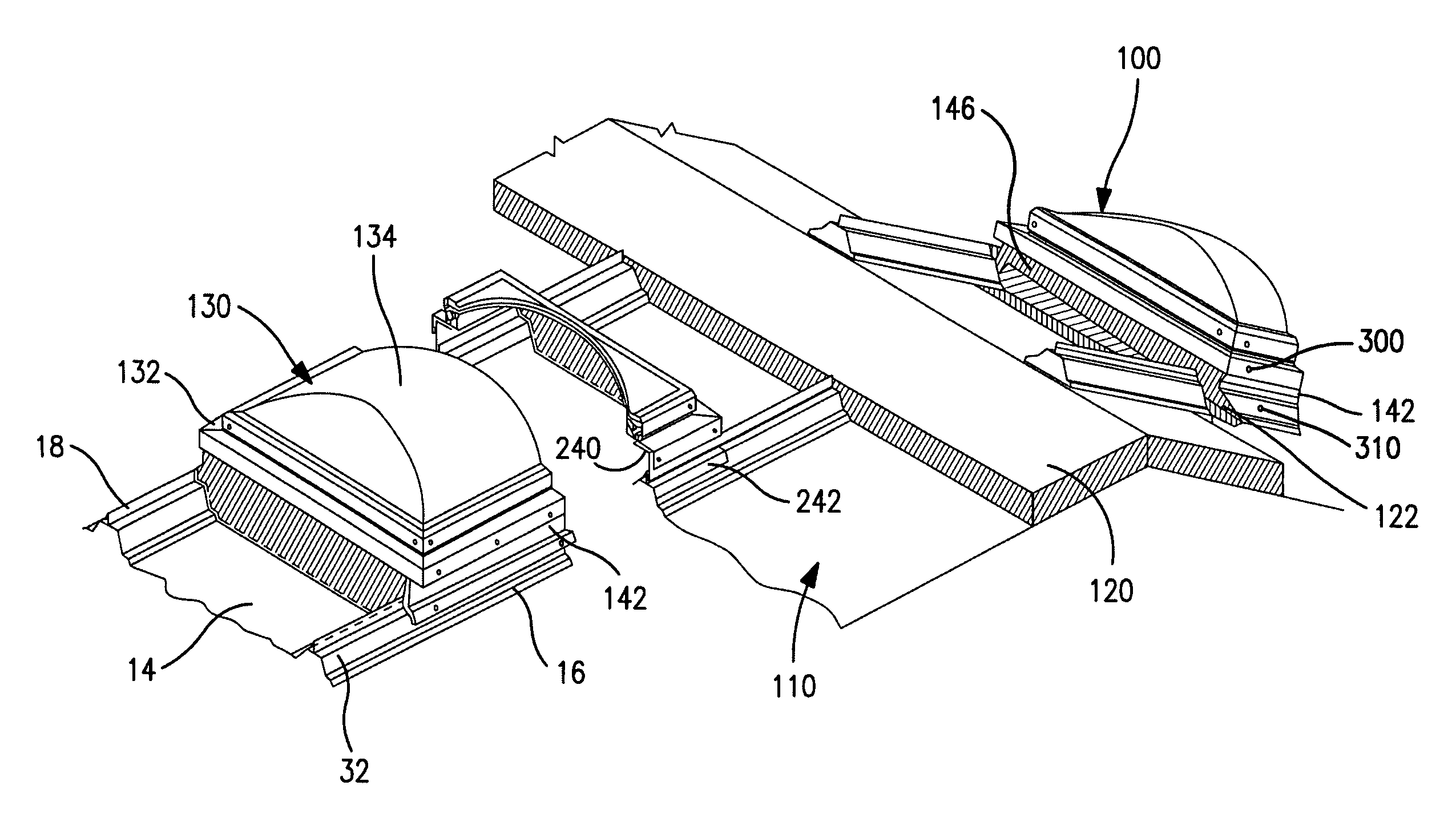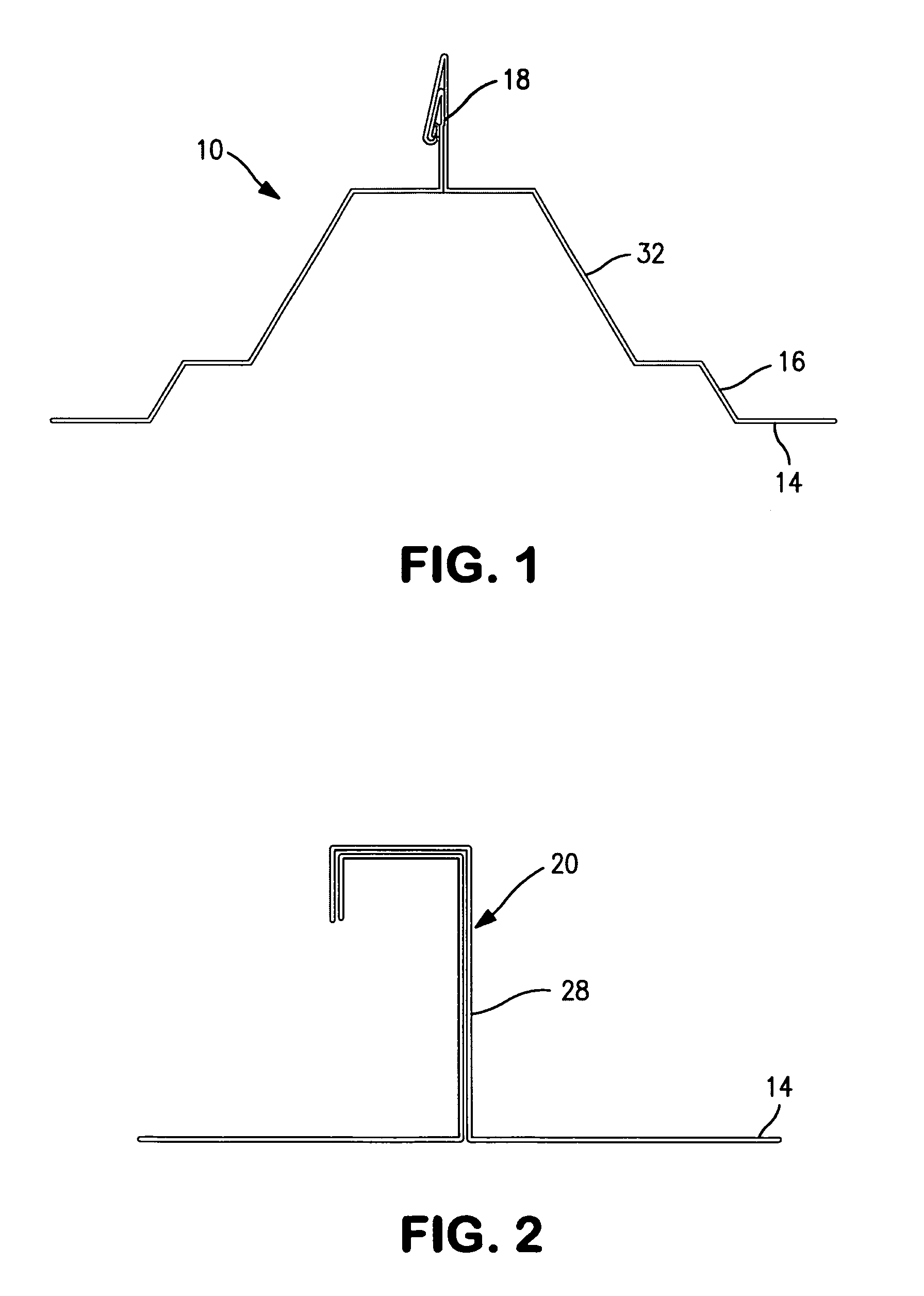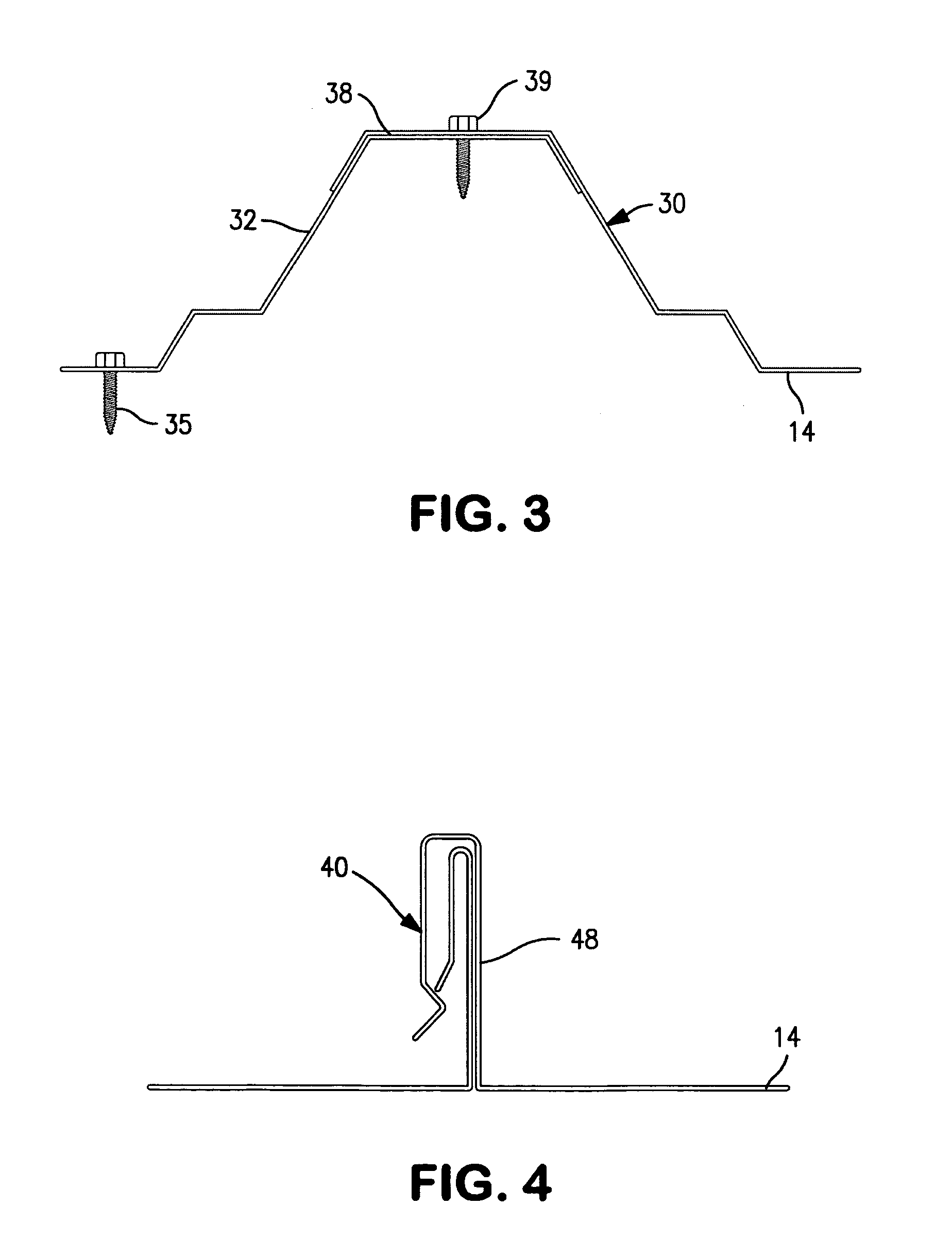Support structures on roofs
a technology for supporting structures and roofs, applied in roof drainage, skylights/domes, building repairs, etc., can solve the problems of high level of stress on joints, leakage of water around the perimeter of conventional roof curbs, and all known conventional structures have a tendency to leak water, so as to reduce the number of incidents of water leakage, especially leakage about the mounting structure, and simplify the effect of joining
- Summary
- Abstract
- Description
- Claims
- Application Information
AI Technical Summary
Benefits of technology
Problems solved by technology
Method used
Image
Examples
Embodiment Construction
[0072]The products and methods of the present invention provide a load support structure, for use in installing various exterior roof loads, including structures which close off apertures in metal roofs. For purposes of simplicity, “closure support structure” will be used interchangeably to mean various forms of closed-perimeter structures which are mounted on ribs of raised elevation metal roof structures, including across the flat of a roof panel, and which collectively define an upstanding enclosing wall which defines a surrounded space about an aperture in a roof, and supports either a closure over the aperture, or a conduit which extends through the roof aperture. Skylight assemblies and smoke vents are non-limiting examples of closures over such roof apertures. Air handling operations such as vents, air intake, and air or other gaseous exchange to and / or from the interior of the building are non-limiting examples of operations where conduits extend through the roof aperture. I...
PUM
 Login to View More
Login to View More Abstract
Description
Claims
Application Information
 Login to View More
Login to View More - R&D
- Intellectual Property
- Life Sciences
- Materials
- Tech Scout
- Unparalleled Data Quality
- Higher Quality Content
- 60% Fewer Hallucinations
Browse by: Latest US Patents, China's latest patents, Technical Efficacy Thesaurus, Application Domain, Technology Topic, Popular Technical Reports.
© 2025 PatSnap. All rights reserved.Legal|Privacy policy|Modern Slavery Act Transparency Statement|Sitemap|About US| Contact US: help@patsnap.com



